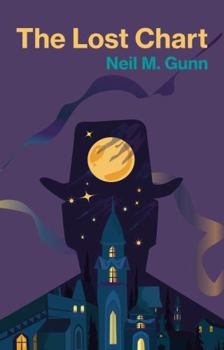The Lost Chart
Unlike most of Gunn's novels, The Lost Chart is set in a city - the city of Glasgow and its sea approaches. The untypical choice of background for the story is not the only departure from Gunn's usual approach to his novels. The book is also a thriller. The story unfolds in a social ambience of fear and speculation within which certain sinister political forces are at work. Nuclear war is a possibility, if not a certainty. Shipping executive Dermot Cameron gets involved in a street brawl, loses the chart of the approaches to a remote Hebridean island and finds himself in a tussle between the British Secret Service and a locally-based communist fifth-column. The plot turns almost exclusively on the date of a looming crisis, and the imminence of that date pervades the thoughts and feelings of those in conflict with a locally-based sinister and elusive enemy. This timeless work, from one of the most important writers of the twentieth century, has a remarkable relevance to the events of today. When it was written in 1949 there was an uneasiness in the West regarding changes to the 'old order' of society and the decline in certain moral standards and spiritual beliefs. Today the problems facing humanity have not changed. The threatening political situations in the Far East, Middle East and Eastern Europe and the concomitant danger of nuclear warfare are all too evident. Against such a background, the way of life on the remote Hebridean island depicted by the author has an almost irresistible appeal.
Format:Paperback
Language:English
ISBN:1849955840
ISBN13:9781849955843
Release Date:January 1
Publisher:Whittles
Length:256 Pages
Customer Reviews
0 rating





